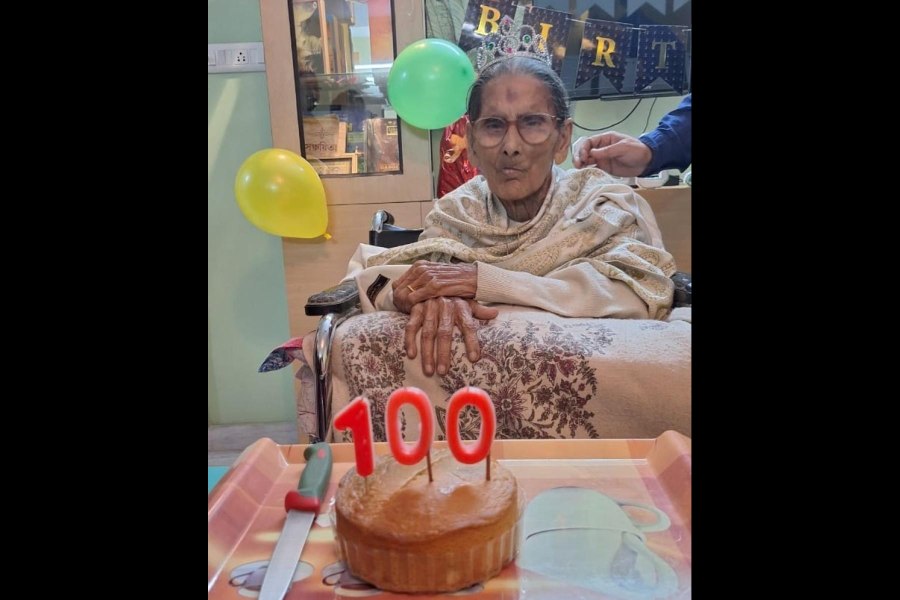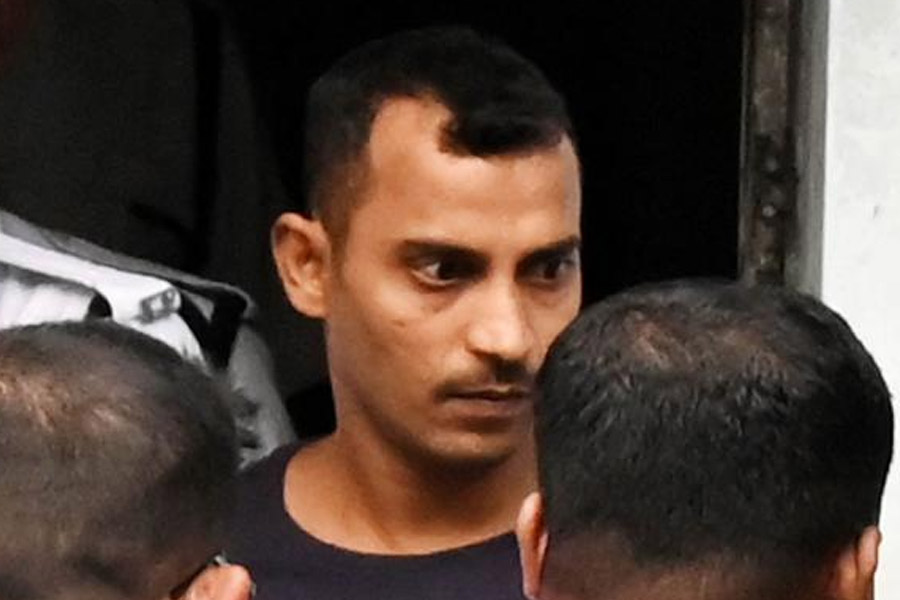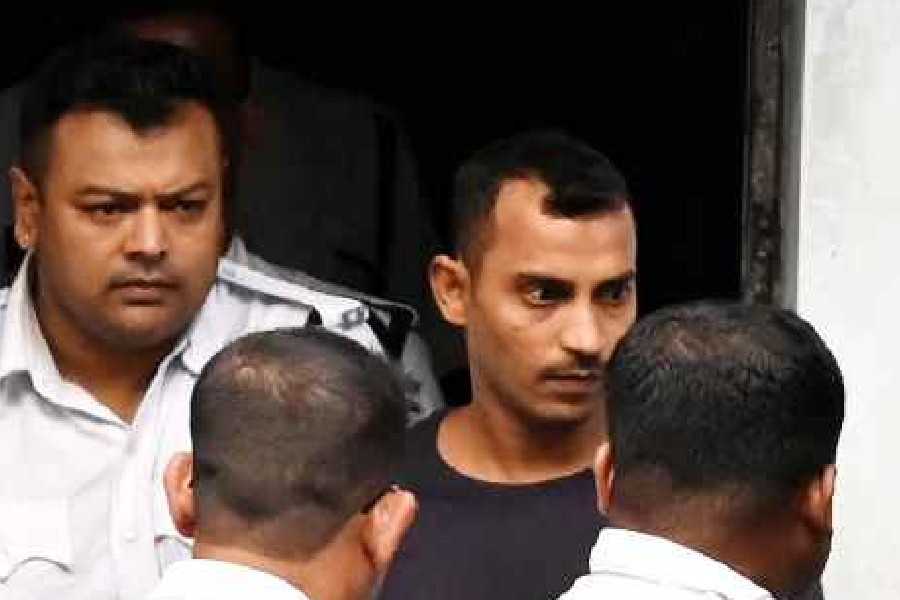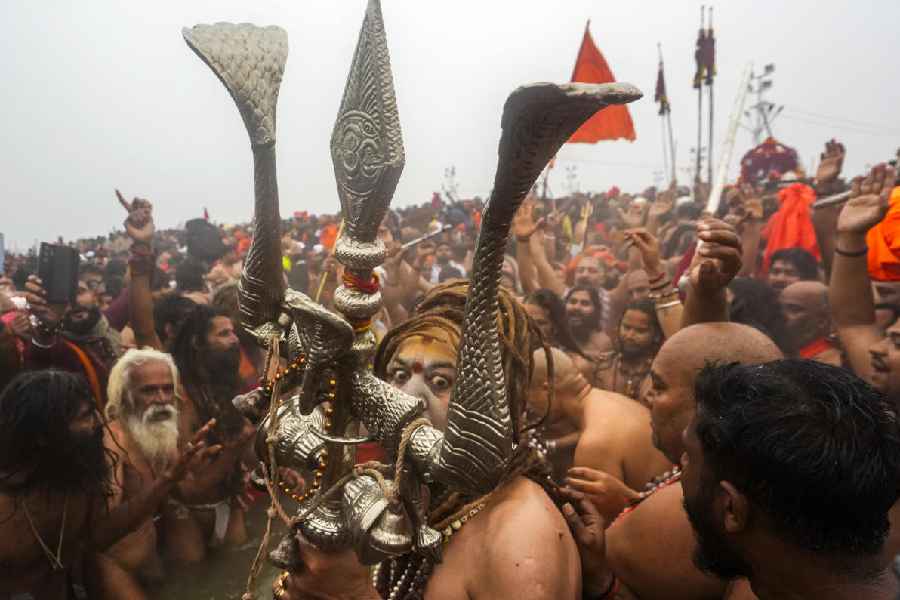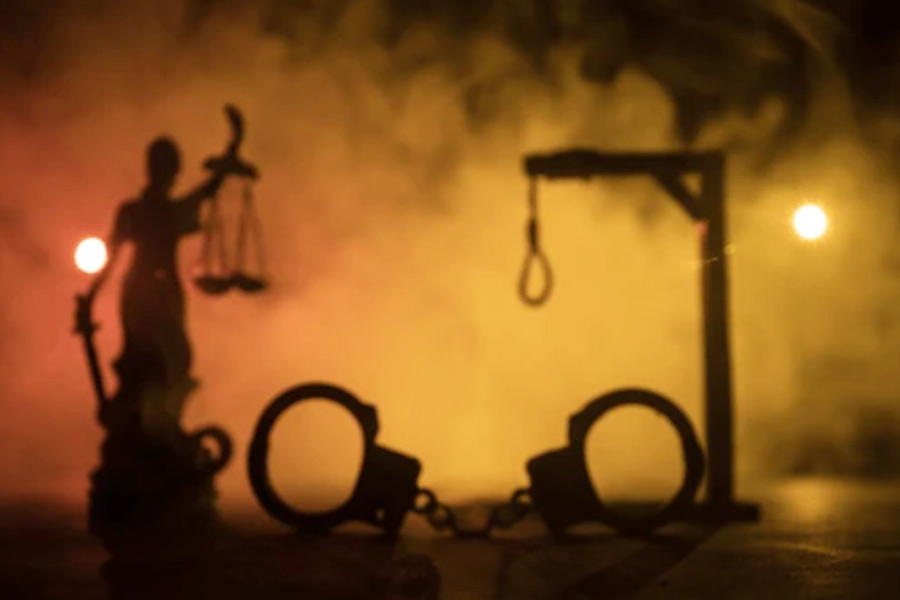This frail little lady, who is wheelchair-bound, once crossed the border carrying her paralysed mother-in-law and four young children in tow. Usharani Banerjee turned 100 on January 1, and although she is now just a shadow of her once feisty self, her mind remains alert. And her life has but been a microcosm of the fate of India itself.
Banerjee was born in Barishal in undivided Bengal and married at the age of 15. Her husband worked in Krishnanagar while she stayed back with the rest of the family until 1947, when it was no longer safe to do so.
“The atmosphere had become acidic with animosity. Ma would be plucking fruits from the garden when neighbours would say something like, ‘Enjoy these fruits while you can. It’s only a matter of time before all this is ours,’” recounts Banerjee’s youngest son, Ashok, with whom she now resides in New Town’s DC Block. Although Banerjee struggles to speak now, she has recounted these incidents multiple times to her family.
One day, neighbours issued her an ultimatum, saying they would be killed if spotted the next day. The 22-year-old Banerjee could wait no longer. Without informing her husband (there were no phones then), she packed whatever she could and in the dead of night, bundled up the children — the youngest had to be carried — and took her paralysed mother-in-law along as well.
“They crossed a river in a boat like this and then took a train to West Bengal. The trains were overflowing with refugees, with people sitting on the roofs as well,” says Ashok.
In Bengal, they arrived at a relative’s house, but her husband was still posted away. “Eventually Ma discovered that the government was distributing houses in Ashok Nagar (near Barasat) that had been built for military personnel but were being allocated to refugees due to their influx. She went by herself to complete the formalities, make the payment (it was a nominal rate they could afford) and moved in with the family.”
Asoknagar was deserted then with only four of the 22 houses in their lane occupied. When women from other houses felt scared at night, Banerjee would invite them over to her home, even chasing off a thief by herself once. Later in the Naxal era, when a pregnant lady in the locality went into labour at night, she arranged for a milk van to ferry her to the hospital and went along herself as any men out at night would be accosted by the police.
The family might have got a house by then but still lived hand-to-mouth. “My youngest sister and I were born in India. Ma would queue up to collect rations with me wailing in her arms. We might have gone without food a few days but we were not allowed to compromise on our studies. We had no electricity so all six siblings would sit around a hurricane lamp and study,” Ashok explains.
Banerjee’s second daughter grew up and secured a teaching job, supplementing her husband’s income for running the household. “My brother Sankar excelled academically. The school waived his tuition fees and provided his books for free. After his Board exams, dada cleared entrance tests for both engineering and medicine. Our father was overjoyed and distributed sweets in the neighbourhood but dada declined both offers.”
He knew the family could not afford his fees. There were no education loans available at that time, and friends had no money to lend as poverty was widespread. “My brilliant brother took up the position of a clerk at a bank. He never took officers’ exams as those roles would be transferable and he didn’t want to abandon the students he had started tutoring,” Ashok sighs.
Another setback occurred when Ashok received his first job offer—as an engineer—in Assam in the 1980s when Bengalis were getting persecuted there. “Ma went on hunger strike to stop me from going there,” he says.
Gradually, Banerjee’s children settled down, her husband passed away, and she moved in with Ashok, his wife Tamali, and their daughter Saheli. She began enjoying jarda paan, broad-bordered saris, and watching Uttam-Suchitra films.
“Till a few years ago, Ma would become furious when weeks passed without my sisters visiting or calling her. They had passed away, but my brother and I didn’t have the heart to tell her,” Ashok shares sadly. “It’s just two of us six siblings now.”
At age 100, Banerjee has some heart and kidney issues and her food must be blended into drinks. “She’s not registering what’s happening in Bangladesh now or she would be very sad. Even previously when I suggested visiting there she would firmly refuse as the memories are too painful,” Ashok says.

